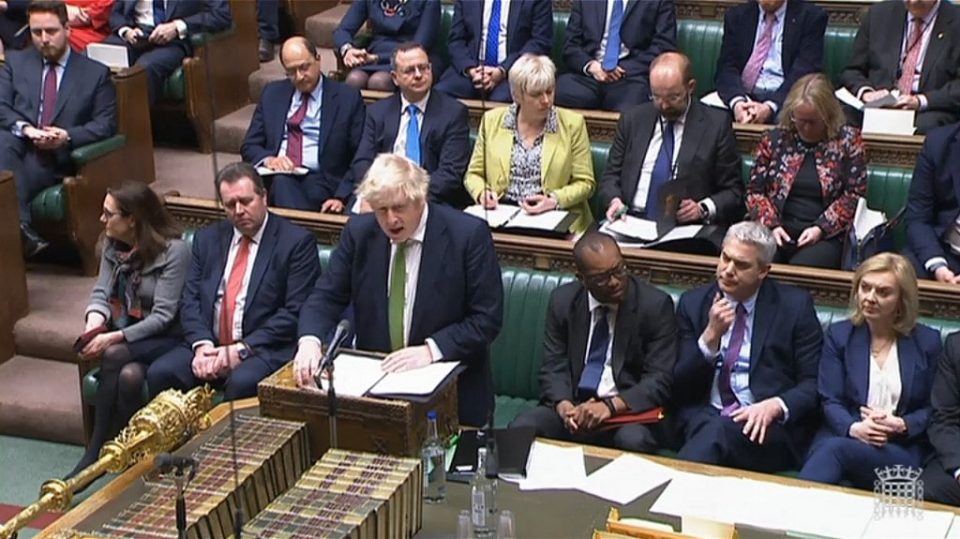(AFP) — Britain on Tuesday slapped sanctions on five Russian banks and three billionaires, in what Prime Minister Boris Johnson called “the first barrage” of measures in response to the Kremlin’s actions in Ukraine.
Addressing the UK parliament hours after Russia ordered troops into two Moscow-backed Ukrainian rebel regions, Johnson described it as “a renewed invasion” of its western neighbour and “pretext for a full-scale offensive”.
“The UK and our allies will begin to impose the sanctions on Russia that we have already prepared… to sanction Russian individuals and entities of strategic importance to the Kremlin,” he told MPs.

The British leader said further sanctions were “at readiness to be deployed” if the Kremlin showed further aggression in what he predicted would be “a protracted crisis”.
The five banks targeted — Rossiya, IS Bank, General Bank, Promsvyazbank and the Black Sea Bank — and three people sanctioned will see any UK assets frozen
The individuals concerned — Gennady Timchenko, Boris Rotenberg and Igor Rotenberg — will be banned from travelling to Britain and all UK individuals and entities will be banned from dealing with them and the banks.
“We cannot tell what will happen in the days ahead,” Johnson added in the House of Commons, amid cross-party condemnation of Moscow’s actions.
“But… we should steel ourselves for a protracted crisis.”
The sanctions announcement came after Johnson chaired an early morning meeting with security chiefs, after which he vowed to hit Russia “very hard”.
Russian President Vladimir Putin on Monday recognised the independence of the rebel-held Donetsk and Lugansk regions of Ukraine and instructed the defence ministry to assume “the function of peacekeeping” in the separatist-held regions.
Its foreign ministry on Tuesday insisted that “for now” it was not planning to send troops to other parts of eastern Ukraine beyond the separatist areas.
However, Monday’s move ratcheted up weeks of tensions and Western diplomatic efforts to de-escalate the situation, after a massive build-up of troops on Ukraine’s border.
Britain’s relations with the Kremlin have been frosty since the radiation poisoning death of a former Russian spy in London in 2006, and the attempted murder of another double agent in the southwestern city of Salisbury in 2018.
Successive governments in London, however, have faced sustained pressure to act against illicit Russian money circulating through the city’s financial markets since the fall of the Soviet Union.
Johnson’s spokesman said earlier Tuesday that Russia’s ambassador to London had been called in for talks on Ukraine by the Foreign Commonwealth and Development Office.
© Agence France-Presse
